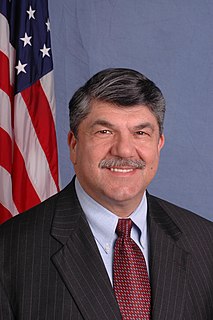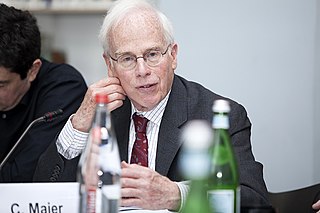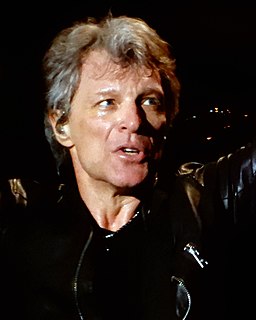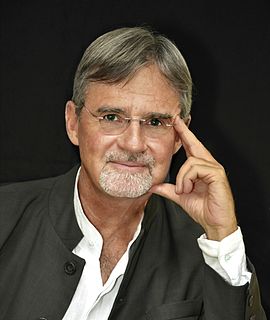Top 734 Franklin Roosevelt Quotes & Sayings - Page 3
Explore popular Franklin Roosevelt quotes.
Last updated on November 8, 2024.
At the end of our lives, we will not be judged by the highest public office we attained in our lifetime, if that were true the current president (George W. Bush) would hold as much esteem as Franklin Roosevelt in our country, and Nelson Mandela in his. That cannot be the case. Rather, we will each be judged by the mark we've left on others.
My recurring nightmare is that someday I will be faced with a panel: Franklin Roosevelt, John Kennedy and Lyndon Johnson all of whom will be telling me everything I got wrong about them. I know that Johnson's out there saying, 'Why is it that what you wrote about the Kennedys is twice as long as the book you wrote about me?'
You can read it in history books now, but they often suppress the fact that the U.S. government tolerated [Nazi]. It's really remarkable because they claim that [Franklin] Roosevelt was impeded by the Neutrality Act. On the other hand, he bitterly condemned a Mexican businessman for sending several guns to the Republic. If you look back, oil was the one commodity that [Francisco] Franco could not receive from the Germans and the Italians, so that was quite significant.
Franklin Roosevelt is one of the great leaders because he does get along with other people. He makes this huge effort. He's a very charming man. He tries to bring Joseph Stalin and Winston Churchill into this tripartite agreement to run the world. And he really was close. If he hadn't died in April of '45, the whole history would be different.
Barack Obama did get a higher percentage of the vote than anybody has in this country in 20 years. I mean, it was a resounding victory. I mean, whether his core constituency was 20 percent or what, his electoral constituency, which is how we measure elections, was 53 percent, which was, you know, historically high, the highest of any Democrat, other than Franklin Roosevelt and Lyndon Johnson.
I just think, realistically, there's a lot of room outside the Trump populist right and the Bernie-Sanders-Elizabeth-Warren populist left. There are a lot of us who believe in open trade, open borders, a dynamic forward-looking economy, not a nostalgic economy, but do want to provide a significant level of social service or sort of economic Milton Friedman foreign policy, Ronald Reagan domestic policy, Franklin Roosevelt. And there's a lot of room in the center.
No one remembers how the American people responded day-to-day, week-to-week, or month-to-month about the decisions that Presidents Franklin D. Roosevelt, Harry Truman and Dwight Eisenhower made during the most dangerous decades in American and world history. But we know now that they did what was right, and we honor them for it.
Well, you have to remember that until 1948, when Hubert Humphrey and others forced the Democratic Party to adopt a new policy on civil rights, the Democratic Party was the party of the old solid South. All of the racists, all of the Cottonhead Smith types and so on were Democrats, allies of Franklin Roosevelt - because of their seniority - of all the major committees of the Congress.
Being a progressive himself, Franklin Roosevelt was talking about the fact that we should provide jobs for everyone who wants one. People do have a right to live in decent housing. They do have a right to education. FDR was preaching this gospel in the '30s, and Dr. Martin Luther King did the same thing in the 1960s with the Poor People's March on Washington. Folks in this country have these rights and it's the job of this country to answer this call.
I say let's go back to a truer use of the word 'freedom.' Let's start with President Franklin Roosevelt's Four Freedoms: freedom of speech and expression, freedom of worship, freedom from want and freedom from fear. I would add the freedom to bargain collectively. Those freedoms are under attack today.
Fascist intellectuals, such as Ugo Spirito, made the round of conferences preaching the virtues of postcapitalism fascism and in fact tried to nudge the structure in a 'leftist' direction by calling for more collective control and even corporative ownership of the economy. Mussolini looked abroad to find that Franklin Roosevelt was merely seeking to emulate Italy's innovations.
And he [Franklin Roosevelt] got the votes of every southern white voting state in the country and wouldn't have been elected president once, let alone four times, if he hadn't. Now, at the same time he acquired over the years a reputation for being sympathetic to blacks, and he got their votes, heaven knows.
As a Polish American, I grew up hearing the phrase 'nothing about us without us.' To Eastern Europeans, the vow is a painful reminder of how Joseph Stalin, Winston Churchill and Franklin D. Roosevelt carved up their small countries after World War II, placing them, against their will, under Soviet domination.
I am a humanist because I think humanity can, with constant moral guidance, create reasonably decent societies. I think that young people who want to understand the world can profit from the works of Plato and Socrates, the behaviour of the three Thomases, Aquinas, More and Jefferson - the austere analyses of Immanuel Kant and the political leadership of Abraham Lincoln and Franklin Roosevelt.
I think the most important thing that comes out of the meeting between Churchill and Roosevelt in early 1942 is a commitment on Roosevelt's part to fight Europe first. To struggle first against Germany and put Japan and the Pacific as a secondary theatre in the conflict. And this is what Churchill was after.
Our only president who has died as U.S. commander in chief in war is Franklin Delano Roosevelt - who died of a cerebral hemorrhage or massive stroke on April 12, 1945, only three weeks before the unconditional surrender of the German armed forces he had laid down as implacable Allied policy two years before.
Franklin Roosevelt, Dwight Eisenhower, and Ronald Reagan each suffered through his second four years. FDR was checkmated by Congress and the Supreme Court. Ike was dogged by Sputnik and reckless charges that the United States suffered from a Missile Gap. Reagan had to wend his way through Iran-Contra.
Activist Supreme Courts are not new. The Dred Scott decision in 1856, imposing slavery in free territories; the Plessy decision in 1896, imposing segregation on a private railroad company; the Korematsu decision in 1944, upholding Franklin Roosevelt’s internment of American citizens, mostly Japanese Americans; and the Roe decision in 1973, imposing abortion on the entire nation; are examples of the consequences of activist Courts and justices.
There are no general-interest media that all of us can tap into. I'm not a good person to talk to about social media. I just avoid it. I'm suspicious also of the culture of venting. But the bigger question is, How can we in this media world have a genuine civic conversation? I mean, look at Franklin Roosevelt. He had these radio talks that all Americans listened to, and there was a common civic conversation that came out of it.
I would always argue to my students that Canada is not necessarily or inherently a left-wing country, and the United States is not necessarily the citadel of right-wing liberty. The obvious case there is Franklin Roosevelt's New Deal, which made the Americans much further left than the Canadians at the time, and Americans coming to Canada found us backward, conservative, and out of tune with the kind of free-spirited liberalism that there was in the States. Then things reversed, with medicare the prime example.
Lincoln was able to say, you know, "It will make me very unhappy if I lose the presidency, but I'm committed to larger things." If you look at candidates and say this is someone who can be happy to go back to their family or they have larger convictions. Franklin Roosevelt jeopardized his presidency by telling Americans in 1940, "We might have to fight Hitler." He loved being president, but he loved defending freedom more.
Stevenson had noble ideas--as did the young Franklin for that matter. But Stevenson felt that the way to implement them was to present himself as a thoughtful idealist and wait for the world to flock to him. He considered it below him, or wrong, to scramble out among the people and ask them what they wanted. Roosevelt grappled voters to him. Stevenson shied off from them. Some thought him too pure to desire power, though he showed ambition when it mattered.
When Arthur Schlesinger Sr. pioneered the 'presidential greatness poll' in 1948, the top five were Lincoln, Washington, Franklin D. Roosevelt, Woodrow Wilson, and Jefferson. Only Wilson appears to be seriously fading, probably because his support for the World War I-era Sedition Act now seems outrageous; in this analogy, Woodrow is like the Doors and the Sedition Act is Oliver Stone.
On international relations, Eleanor Roosevelt really takes a great shocking leadership position on the World Court. In fact, it amuses me. The very first entry in her FBI file begins in 1924, when Eleanor Roosevelt supports American's entrance into the World Court. And the World Court comes up again and again - '33, '35. In 1935, Eleanor Roosevelt goes on the air; she writes columns; she broadcast three, four times to say the US must join the World Court.
It is difficult to find a reputable American historian who will acknowledge the crude fact that a Franklin Roosevelt, say, wanted to be President merely to wield power, to be famed and to be feared. To learn this simple fact one must wade through a sea of evasions: history as sociology, leaders as teachers, bland benevolence as a motive force, when, finally, power is an end to itself, and the instinctive urge to prevail the most important single human trait, the necessary force without which no city was built, no city destroyed.
Most Americans have no memory of the designs Franklin Roosevelt's New Dealers had for postwar-American foreign policy. Human rights, self-determination and an end to European colonization in the developing world, nuclear disarmament, international law, the World Court, the United Nations - these were all ideas of the progressive left.
My recurring nightmare is that someday I will be faced with a panel: Franklin Roosevelt, John Kennedy and Lyndon Johnson all of whom will be telling me everything I got wrong about them. I know that Johnson's out there saying, 'Why is it that what you wrote about the Kennedys is twice as long as the book you wrote about me?
That was the reason why very few people fleeing the rise of fascism in Europe, especially in Germany, could get to the United States. And there were famous incidents like with the MS Saint Louis, which brought a lot of immigrants, mostly Jewish, from Europe. It reached Cuba, with people expecting to be admitted to the United States from there. But the administration of Franklin D. Roosevelt wouldn't allow them in and they had to go back to Europe where many of them died in concentration camps.
One has to say that they [Eleanor and Franklin Roosevelt] were pioneering to some extent. They didn't know that some of the housing projects that they were putting up for the poor were going to turn into crack dens and rapists' bowers and things of that sort, which they have since become. But you can't always foresee the future. I'm sure their intentions were the best.
I don't think she ever had a single initiative at the United Nations that was not previously [vetted] by the people at the State Department, approved of, and authorized. She did manage to get around the world an awful lot, and find other parts of her vast slum project that needed repair. But I don't think that that was the main point. The main point was that she, after all, connoted Franklin Roosevelt, who by then was long dead, and had a certain prestige and power on that account.
Well, Mr Obama inherited probably the biggest inventory of problems, certainly foreign policy problems, than any American president ever has. I think the entire inventory of problems that he inherited is probably as big overall as any president, certainly since Franklin Roosevelt and maybe, in some cases, worse.
After the signing of the Constitution, Benjamin Franklin was asked by a woman on the street, "What have you given us, sir?" Franklin Responded, "A Republic, if you can keep it." A critical moment in history has come; our Republic is in jeopardy. Can we keep it? If the answer to that question, as I fear, is "no," then we have no one to blame but ourselves.
The greatest leaders in fighting for an integrated America in the twentieth century were in the Democratic Party. The fact is, it was the liberal wing of the Democratic Party that ended segregation. The fact is that it was Franklin Delano Roosevelt who gave hope to a nation that was in despair and could have slid into dictatorship. And the fact is, every Republican has much to learn from studying what the Democrats did right.
I think the most important thing I wanted to say at various times to Franklin and Eleanor Roosevelt was that it seemed so sad to me that - I really believe they loved each other and had a great deal of affection - but because of that early hurt in their marriage, there was a certain kind of distance from then on, until their deaths actually. So at times, I just wanted to push them together and say, "Come on, you guys! I know you love each other. This is crazy!"















































